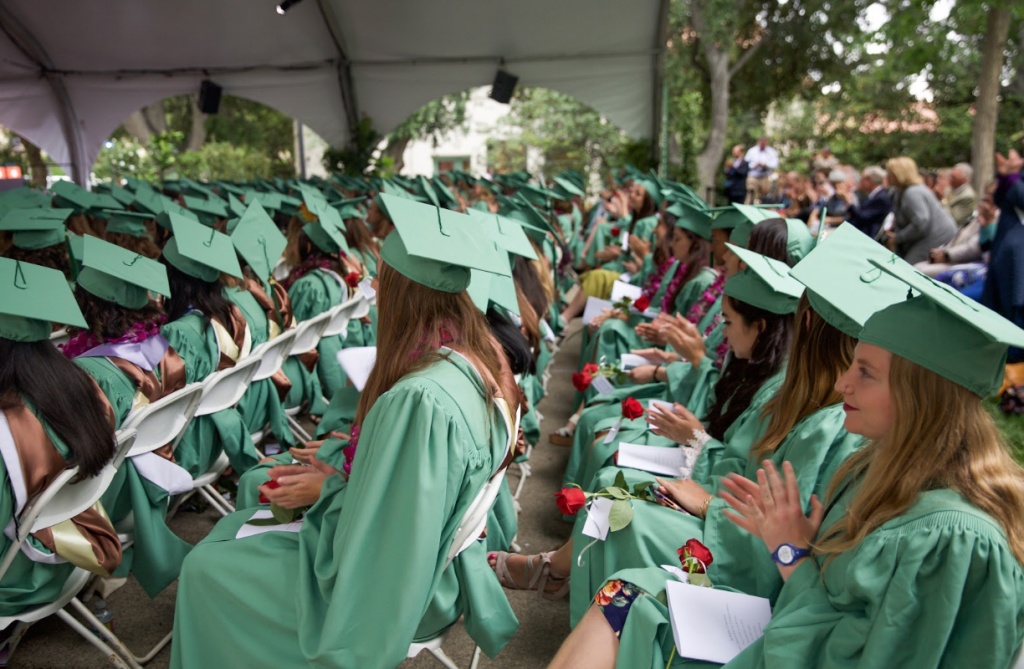Jacqueline Loh ’22
Staff Writer
“You’re going to a women’s college? Why would you do that to yourself?” “Do you hate men?” “Good luck finding a husband.” Those were some of the statements I received when I announced that I would be attending Scripps College. Many were beyond shocked that I chose a historically all-women’s college, as if I were attending college to seek men rather than an education. However, for many young women applying to college, a single-sex education is a better fit.
But debates have arisen in recent years: are women’s colleges still necessary? Based on the number of women’s colleges in America, some may say no. Overall, the number of women’s colleges have dwindled, from 230 women’s colleges 50 years ago to a mere 34 today. Some argue that women’s colleges are no longer needed, as women have achieved equality, and even hold the 56 percent majority of spots in higher education. However, this ignores the great disparity that exists within STEM fields. So does this mean that women’s colleges are obsolete? Will there be a day when Scripps becomes co-ed? If the enrollment numbers indicate anything, women’s colleges are even more needed today.
Women’s colleges have been seeing a gradual increase in applications and enrollment, despite the overall decline in college enrollment across the nation. According to Scripps College, their number of applicants surged from 2,613 in 2015 to 3,032 in 2016. Furthermore, the class of 2021 was the largest entering class in Scripps’ history, with 329 first-years. This growing trend can be seen at women’s colleges across the nation. At Smith College in Massachusetts, first-year enrollment jumped from 9,000 in 2014 to 13,000 in 2017.
Despite perceptions that women have achieved equality, the reality is that true gender equality still has a long way to go in America. If co-ed colleges are progressive enough, then why do female students continue to be underrepresented in positions of leadership and in STEM?
Even at the Claremont Colleges, Scripps students are constantly being insulted by the other colleges for being a historically all-women’s college. In co-ed classes at the other Claremont Colleges, men joke that Scripps “isn’t even a real college.” Jokes that Scripps is the easiest college to get into, snide remarks that Scripps is not as prestigious, to even drunken men urinating on our buildings, gendered slander against our school is rampant throughout the consortium.
Scripps is under constant attack for the mere fact that we are a women’s college. “I feel like Scripps being in such a co-ed environment really emphasizes [the other Claremont Colleges] looking down upon us as well,” former student Jenni Nguyen said, “looking at the memes on the meme page about Scripps being the “least prestigious” Claremont college or other sexist memes just because it is [historically] all women’s.”
The benefits of attending a women’s college are endless. Besides being able to study and learn in an environment without condescending male peers and faculty, a women’s college provides a unique feminist atmosphere to empower the next generation of leaders and thinkers.“I’ve found that women who are less inclined to speak up in a co-ed environment are more comfortable doing so when it is all women,” Nguyen said.
Nguyen, who has transferred from Scripps College to Wellesley College, was also attracted by the feminist atmosphere there.“A women’s college education is really, genuinely a valuable thing to have in a world where men are always a step ahead.”
In a study of women’s institutions, it was found that women attending women’s colleges are more likely to earn degrees in the science or mathematics than women at co-educational institutions. Furthermore, compared to those at co-ed colleges, women attending women’s colleges “exhibit greater gains in such cognitive areas as academic and intellectual development, academic involvement, intellectual self-confidence; and self-perceived academic ability,” according to the Indiana University Center for Postsecondary Research.
“Overall I have found that being at women’s colleges have been a great choice for me and have gotten me to be the more confident and courageous person I am today,” Nguyen said.
Women deserve a space of their own in higher education. Young girls deserve to see strong, intelligent women in faculty and research as inspiration for their own academic careers. Female faculty deserve to teach and present their work in an environment free of a condescending male gaze. Contrary to popular belief, women go to college to grow intellectually and personally, not to wait around for a husband. Suffice to say, women’s colleges are here to stay.
Photo courtesy of Scripps College



